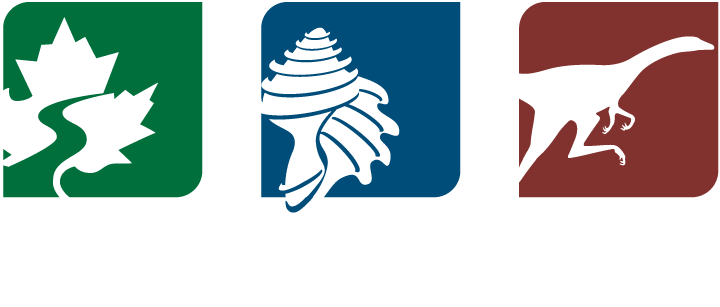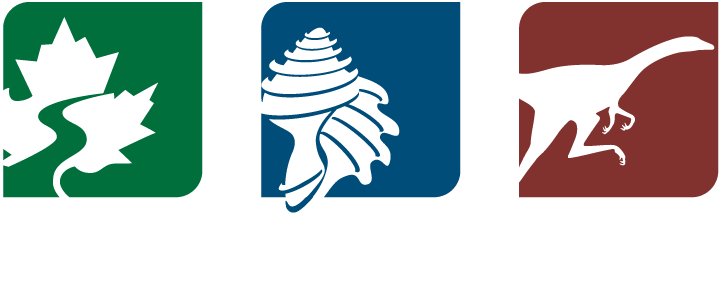The PaleoCommunity Organizer
with Asa Kaplan, Vice President, Eastern Missouri Society for Paleontology
The Paleontological Research Institution (PRI) turns 92 this year, and like any spry 92-year-old, it’s launching a community-wide newsletter. How will it go? What will make a new newsletter a worthy addition to the reading lists of members who, characteristically wide-ranging in their curiosity, find their feeds always overflowing and their open tabs numerous? I’m just an aspirational Xennial, but I think I know part of the answer: Community.
A newsletter used to be the place to share news items about fossils, but these days you can simply customize your Google News feed to pick up every obscure fossil blurb from every local paper—no need to check the newsletter. A newsletter used to be the place to share accurate information about fossils themselves, but nowadays there’s no lack of accurate fossil information out there. Key fossil books and journals are now free to download, and even the colossal Treatise on Invertebrate Paleontology is now free for all (kudos to the University of Kansas, the Geological Society of America, and the Paleontological Society, who helped make this happen!). Websites such as myFOSSIL and The Fossil Forum help people find and digest the information they seek, and PRI’s Digital Atlas of Ancient Life offers an excellent starting point for information on regional faunas and beyond. It’s clear that information is no longer the limiting reagent.
But something goes missing when all the information is at each individual’s fingertips. The whole fossil journey, which used to be possible only with a group of fellow seekers, now often ends up taking place in isolation. And the fellowship, which we might have treated as a mere necessity or even an inconvenience before, turns out to be something that we failed to value and thereby lost. Don’t get me wrong; science is in many ways an end unto itself, and autodidacy of any kind is entirely praiseworthy. But there’s a kind of emptiness when we keep to ourselves our pursuit of the things that hold personal meaning. And there’s a loss to the community when someone could have learned from our unshared findings, or celebrated them with us the way only another freaky fossil friend* ever could. There might even be a loss to science and humanity itself when isolated students of paleontology leave unilluminated the common paths of learning that could have been mutually illuminated.
Community. It’s why the motto of the Mid-America Paleontological Society (M.A.P.S.) isn’t “A love of fossils boosts amateur contributions to science” or even “A love of fossils makes us all better people” but rather “A love of fossils brings us together.” That togetherness is the end unto itself, and fossils and science and learning are just the means to that end.
If you read that again and it still seems all backward to you, then stick with this monthly column in the American Paleontologist Newsletter. I’ll get to say more in a future issue about the critical role that clubs, regardless of stated topic or purpose, play in holding American society together. And there will be more about what fellowship can look like beyond what you may have seen in your local fossil club. This column is called The PaleoCommunity Organizer because it centers the role that community plays in avocational paleontology. And yes, it’s an inside joke with myself, since some of my past research was on the forces of nature that organized paleocommunities in the distant past. But more to the point, this is my particular ball of wax because of my training in, and inclination and commitment to, community organizing. It’s something we need more of if avocational paleontology is to survive…or even think about flourishing.
And the first thing a community organizer should do is share their story, but that’s not really what this column is for. I’ll just say that, some twenty-five years ago, I got so convinced of my identity as a scientist that I ended up in grad school learning way too much about brachiopods. The rest of what I stand for—caring, precision, kindness, win–win’s, right action, solidarity, and knowing when to say “I don’t know”—you can glean from my words and actions as @pefty on The Fossil Forum or as Asa Asa on Facebook groups such as Great Lakes Rocks and Minerals, Missouri Fossil Hunters, and Ohio Fossils - Collecting and Connecting. I’m currently an officer of the Eastern Missouri Society for Paleontology (EMSP) and a member of the Earth Science Club of Northern Illinois (ESCONI). And in case it helps, I’m a Myers–Briggs INFP Personality, so I always welcome feedback on what I share here. I look forward to reading and responding as appropriate to comments about this column on The Fossil Forum. Links to those discussions are below.
*Phrase courtesy of Tim “Skippy” Miller.
Join the PaleoCommunity Organizer discussion
Note: The links below lead to discussion boards on The Fossil Forum website. The Fossil Forum is not associated with the Paleontological Research Institution (PRI) and PRI assumes no responsibility for the nature or moderation of the conversations that take place there.


